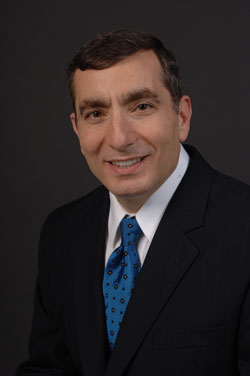James Tour one of three in the world named to new Lectureship Awards
Rice University chemist James Tour has been named by the American Chemical Society to represent the Americas as one of three winners of the inaugural ACS Nano Lectureship Awards.
The awards are given to scientists from around the world who have made a significant impact in nanoscience and nanotechnology.
Tour has been invited to lecture at the European Materials Research Society meeting May 14-18 in Strasbourg, France.
“It’s nice have our work recognized in this way,” said Tour, Rice’s T.T. and W.F. Chao Chair in Chemistry as well as a professor of mechanical engineering and materials science and of computer science. “The students and I have enjoyed publishing in this new ACS journal that, in just a few short years, has acquired an impact factor of about 10.” Impact factor indicates a journal’s average citations per article, and thus its relative importance in its field.
Tour and his lab have maintained a high profile in the prestigious journal, with three papers currently among the top 20 most-read in ACS Nano over the past 12 months. They include the No. 1 paper, “Growth of Graphene from Food, Insects and Waste,” which followed an experiment last year in which Tour’s students made graphene from Girl Scout Cookies. The students calculated that at then-current market prices, one box of cookies could produce graphene worth $15 billion.
For his talk, Tour will present an overview of research areas under investigation by his group, including new routes to the growth, preparation and manipulation of graphene, carbon carriers for nanomedicine and the construction of nanocars and other single-molecule machines.
Tour accepted an invitation by ACS Nano to bring a guest speaker. He chose Tao He, a former postdoctoral research associate in his lab and now a professor of physical chemistry at the National Center for Nanoscience and Technology in Beijing.
Also honored with Lectureship Awards were Luis Liz-Marzán, a professor of chemistry at the University of Vigo, Spain, and Frank Caruso, a professor of chemistry and federation fellow at the University of Melbourne, Australia.



Leave a Reply